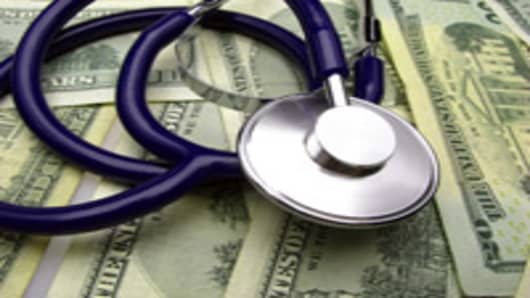By the way, anyone earning more than $200,000 (a fat cat) or families over $250,000 (litter of fat cats) will see their Medicare taxes increase almost 100%.
Okay, it's going from 0.5% to 0.9%.
There are all sorts of taxes and tradeoffs to reach this mythical $129 billion in savings over the next ten years that you have to question if it's worth it. Remember, this bill spends $871 billion dollars. The $129 in "savings" comes from what the CBO has estimated the costs of the current structure will be status quo over the same ten year period.
Just one small problem, the CBO scorecard on the $871 billion in cost assumes static behavior by participants. Let that sink in. This means they don't make any allowances for people changing their behavior to take advantage of the new system and drive up the costs. Hmm, I wonder if that will happen?
Hey, the good news is that it provides coverage for 94% of eligible Americans under 65, it prohibits insurers from denying coverage on pre-existing conditions, and creates regulated exchanges where people who do not get coverage through work can shop for insurance plans. The other good news is that the Senate has no provision for a public option.
Oh, but the Senate bill has to be merged into the House bill. The House bill has a 5.4% surtax on fat cats earning over $500,000 a year and litters of over $1 million. It also has cuts in Medicare payments to hospitals and other providers to get to their CBO score of only $109 billion in savings or cost of $1.05 trillion. And it has the public option.
We won't know all the winners and losers in health care that Congress is picking until they finish the merging or conferencing on the bills. This is expected to be done sometime in January so that a final bill can be presented to President Obama by his State of the Union address.
Overall, this will be a seismic change to 17% of the US economy. It's difficult to be optimistic that the US federal government will be accurate in their predictions of costs or benefits for their health care legislation. Given the dire state of the United States fiscal deficit and debt creation, this will likely exacerbate concerns over the ability of the government to pay for what it owes.
________________________
Andrew B. Busch is Global Currency and Public Policy Strategist at BMO Capital Markets, a recognized expert on the world financial markets and how these markets are impacted by political events, and a frequent CNBC contributor. You can comment on his piece and reach him hereand you can follow him on Twitter at http://twitter.com/abusch.



